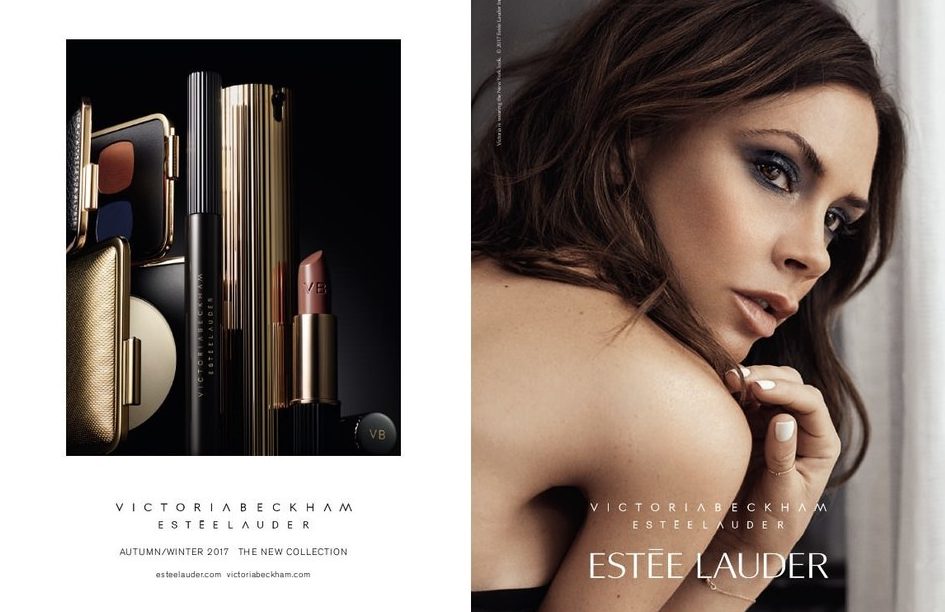For the past year and a half, Victoria Beckham has been engaged in a quiet trademark fight down under, and now it is heating up. In the fall of 2018, the Spice Girl-turned-fashion figure sought to block an unrelated brand from registering two trademarks that make use of the initials “VB” for use on cosmetics on the basis that they are likely to confuse consumers given her 3-year old beauty collection with Estée Lauder. In a recently-issued decision, the Australian trademark office shot down Beckham’s oppositions, and instead, sided with Sydney-based skincare company VB Skinlab.
According to a decision issued early last month, a hearing officer for IP Australia, the country’s national intellectual property body, found that Victoria Beckham – who is described as “an individual from the United Kingdom that is a well-known figure in the fields of music (being a former member of the Spice Girls) and fashion” – failed to “establish any of the grounds of opposition” that the brand cited in the two motions to block VB Skinlab’s pending trademark applications for “VB Salon” and “VB Skinlab” that it filed in October 2018.
In the opposition filings, counsel for Victoria Beckham argued that 30-year old VB Skinlab’s marks are “likely to deceive or cause confusion” among consumers if registered, as the Victoria Beckham brand operates “under the word mark ‘VB’ businesses in fashion apparel, accessories and cosmetics” across the globe, including in Australia, where it has used the “VB” marks since at least September 2016.
IP Australia hearing officer Nicholas Smith notes in his March 2020 decision that in addition the “range of luxury womenswear [that Beckham launched] in 2008,” and the collection with Estée Lauder, which followed in 2016, Beckham “promotes her businesses via her substantial social media presence including 12.8 million followers on Twitter, 24.9 million followers on Instagram and 3.1 million followers on Facebook.” He also states that based on figures provided by Beckham, her business, “including its cosmetic and non-cosmetic products, has been valued at over 100 million GBP ($123 million).”
As for the commercial success of “[Beckham’s] Estée Lauder cosmetics range in Australia,” the court states that based on evidence provided by Beckham, sales between July 1, 2017 and December 31, 2017 amounted to $349,708. Smith notes that Beckham’s “failure to provide any evidence of sales before July 2017 or after January 2018 is unexplained but it can be inferred that that evidence would not have assisted [Beckham’s] case.”
Ultimately, Smith asserts that Beckham does, in fact, have “a significant reputation in [its brand and] ‘VB’ trademark for fashion apparel and accessories” in Australia, and has since “expanded into cosmetic products as they are sold through the same or similar trade channels to similar consumer demographics,” as is “common” in the fashion industry.
Even against this background, though, Smith sided with the lesser known VB Skincare, holding that while there is “a total impression of resemblance between” two parties’ trademarks, that “the differences between them are slight,” and that the parties use the marks on the same type of goods (namely, cosmetics), the likelihood of confusion is lessened, as “much of the promotion for [Beckham’s] cosmetics line is done under [her] name or under the well-known Estée Lauder.”
More than that, he asserted that Beckham does enjoy “significant fame” and there is, in fact, “evidence of substantial promotion of [her] cosmetics line through free media and the [her] social media presence.” However, she also pointed to “the short time of use, limited sales and use of other marks (namely VICTORIA BECKHAM and ESTEE LAUDER) to promote the [beauty collection] products” as indicating that the “VB” trademark has “acquired at best a very limited reputation in Australia for cosmetic products.”
Still yet, the officer for IP Australia determined that Beckham had failed to establish that VB Skinlab filed its trademark applications in bad faith, despite making such an assertion in its opposition filings. According to Smith’s decision, he is “not satisfied that [VB Skinlab’s] conduct in filing the trademark applications was unscrupulous, underhanded or unconscientious in character.”
With all of the foregoing in mind, the IP office refused to grant Beckham’s attempt to block VB Skinlab’s trademark from proceeding in the registration process. But the fight is not over yet, and in fact, appears to only be heating up, as counsel for the Beckham brand filed an appeal with the Australia’s Federal Circuit Court, and is slated to make its opening arguments on Wednesday.
UPDATED (June 5, 2020): In an order on June 5, Judge Julia Baird of the Federal Circuit Court dismissed the case in its entirety in response to a joint filing the parties consenting to a voluntary dismissal in light of a settlement agreement. Baird’s order directed the registrar of trademarks to “take all necessary steps” for VB Skinlab’s two trademark applications to proceed in the registration process.











